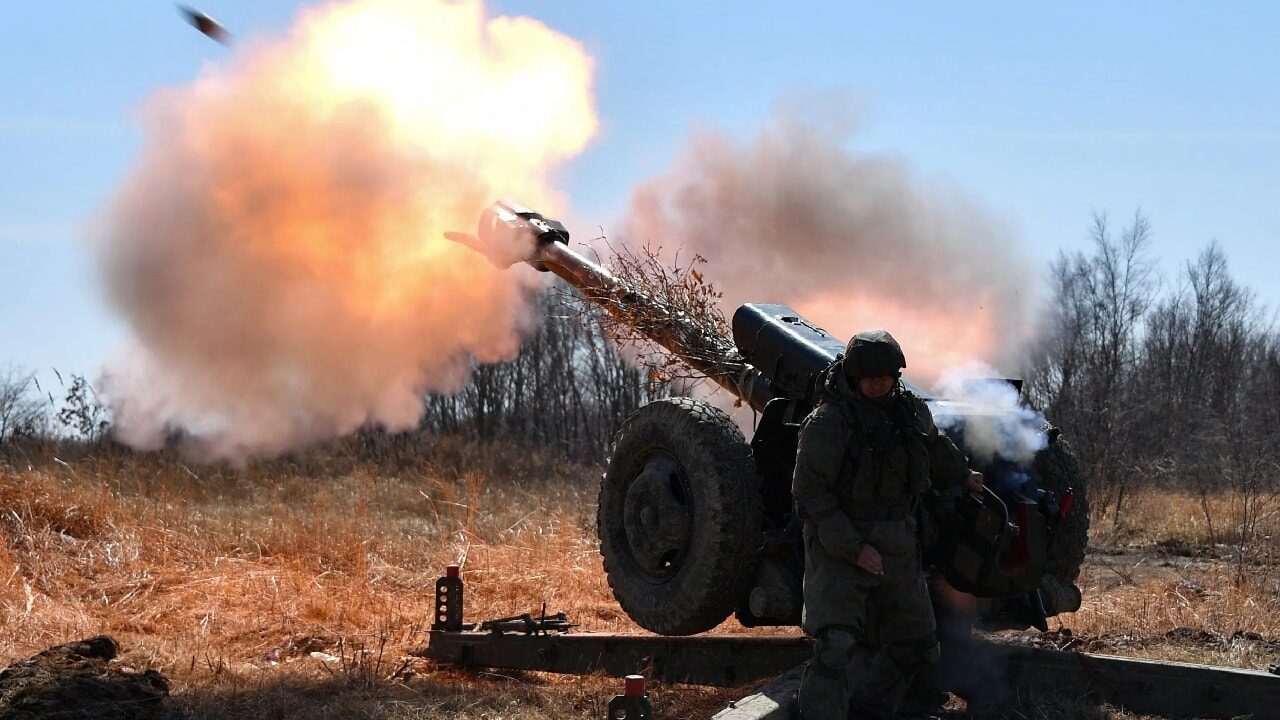Zaporizhzhia Loses Power Line for Second Time – Ukraine’s Zaporizhzhia nuclear power plant lost its main line to the national power grid again on Saturday as shelling continued around the facility.
The power plant going offline for a second time is significant for a couple of reasons – first, because of the rumors that Russia is preparing to redirect the energy produced by the plant to Russian-controlled parts of Ukraine, and secondly, because of the presence of an International Atomic Energy Agency (IAEA) mission.
Inspectors from the United Nations’ nuclear watchdog arrived at the Zaporizhzhia facility on Thursday after initially being denied access from Ukrainian-controlled territory. The team toured the facility and later announced that the team plans on maintaining a long-term presence at the facility to ensure it remains safe and operational.
IAEA staff still present at the facility were informed that the fourth operational 750 kv power line was down on Saturday, the only such remaining power line at the plant. The plant was able to stay online and safe, however, thanks to the support of a nearby thermal power plant that supplies energy to the facility through an external grid.
The IAEA revealed in a statement that two operating units were also disconnected on Saturday due to grid restrictions.
“The same unit 5 was disconnected also on 1 September – the day of the Director General Grossi’s arrival at the site – due to an electrical failure but it was reconnected the following day,” the statement reads.
IAEA Director General Rafael Mariano Grossi also confirmed in the statement that the team received “direct, fast and reliable information” about the developments, and that they now have a better understanding of the functionality of the plant’s reserve power line.
Grossi also reaffirmed his commitment to maintaining a “permanent” presence at the facility, describing his team’s ability to maintain a close eye on the plant’s operations as a “game changer.”
Russians Using Zaporizhzhia As “Nuclear Weapon”
During an interview with ABC World News Tonight’s David Muir, Ukrainian President Volodymyr Zelenskyy accused Russia of using the nuclear plant as a “nuclear weapon.”
“You see, they occupied our nuclear station, six blocks. The biggest in Europe. It means six Chernobyls; it means the biggest danger in Europe. So, they occupied it. So that is– means that they use nuclear weapon. That is [a] nuclear weapon,” the Ukrainian president said, adding that there should be zero military presence from either side on the site.
EXCLUSIVE: Ukrainian President Zelenskyy to @DavidMuir: Russians are using Zaporizhzhia as a “nuclear weapon.” https://t.co/23yrptnbWd pic.twitter.com/IR2u89SQuZ
— ABC News (@ABC) September 4, 2022
“There shouldn’t be any military personnel. There shouldn’t be any military equipment on the territory. And there shouldn’t be the workers of nuclear power plant who are surrounded by people with firearms,” he continued.
The presence of Russian military personnel at the facility has prompted several world leaders and representatives to accuse Russia of using the plant as a “shield,” though the Kremlin defends its military presence by claiming the facility is at risk from Ukrainian military strikes – strikes that would never occur if Russia was not storing ammunition and military equipment on the plant’s grounds.
Jack Buckby is a British author, counter-extremism researcher, and journalist based in New York. Reporting on the U.K., Europe, and the U.S., he works to analyze and understand left-wing and right-wing radicalization, and reports on Western governments’ approaches to the pressing issues of today. His books and research papers explore these themes and propose pragmatic solutions to our increasingly polarized society.

